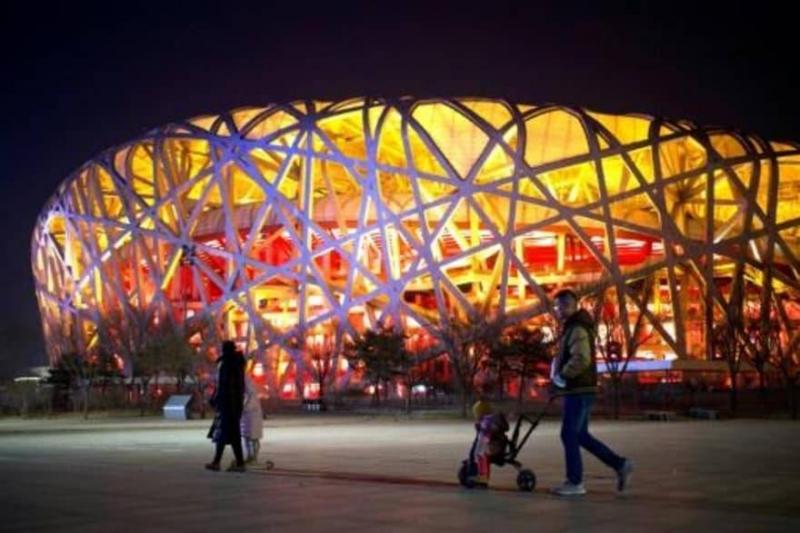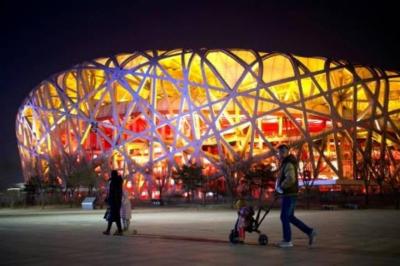On Monday, the United States announced its diplomatic boycott of the 2022 Winter Olympics in a measured criticism of China's human rights record, but the decision will not prevent American athletes from participating in the competitions. The decision came after the U.S. administration spent several months trying to determine the most appropriate position regarding the Winter Olympics, which will be hosted by a country accused by Washington of committing "genocide" against Uyghur Muslims in Xinjiang in northeastern China.
No immediate comment was issued from Beijing in response to the U.S. decision, but earlier on Monday, China threatened to take "countermeasures" in the event of an official U.S. boycott of the Olympics. Chinese Foreign Ministry spokesman Zhao Lijian, in response to media reports suggesting that a boycott announcement was imminent, stated, "I want to emphasize that the Winter Olympics is not a stage for political positioning and manipulation."
For its part, the International Olympic Committee stated that it "respects" the decision made by the United States while expressing its satisfaction that this decision will not affect the participation of American athletes. An IOC spokesperson told AFP that "the presence of government officials and diplomats (at the Olympics) is a purely political decision for each government, and the IOC fully respects this within its political neutrality."
Politicians in the United States quickly welcomed the decision, especially since President Joe Biden faces pressure to condemn China's human rights violations. White House spokesperson Jen Psaki stated, "The Biden Administration will not send any diplomatic or official representation to the Winter Olympics in Beijing in 2022 or the Paralympic Games, due to the continued genocide and crimes against humanity being committed by the People’s Republic of China in Xinjiang, along with other human rights violations." She added, "The athletes on Team USA have our full support. We will support them completely and we will cheer them on from the United States."
Several human rights organizations have accused Beijing of detaining at least a million Muslims in Xinjiang in "re-education camps," forcibly sterilizing women, and imposing forced labor.
Senator Bob Menendez, Chairman of the U.S. Senate Foreign Relations Committee, welcomed the decision, describing it as a "strong rebuke" to the genocide campaign being waged by the Chinese Communist Party in Xinjiang. He called on "allies and partners who share our values to join the United States in this diplomatic boycott."
On the Republican side, Senator Mitt Romney welcomed the Biden Administration's decision, affirming in a tweet that the diplomatic boycott is the "right message" to send to Beijing "without punishing American athletes." Romney, who chaired the organizing committee for the 2002 Winter Olympics held in Salt Lake City, stated, "The Olympics should never again be attributed to a country that is committing genocide and violating the human rights of its citizens."
Conversely, Mike Pompeo, Secretary of State under former President Donald Trump, called for a complete boycott of the Olympics. Pompeo tweeted that "the Chinese Communist Party does not care at all about a diplomatic boycott, because in the end, it will welcome athletes from around the world."
Human Rights Watch viewed the U.S. decision as "vital," but called for further accountability "for those responsible for these crimes and justice for the victims." U.S.-China relations have deteriorated under former President Trump amid a trade war and heated disputes over the origins of the COVID-19 outbreak in Wuhan, China. Biden has sought to re-engage with Beijing while simultaneously focusing on strengthening Washington's alliances to counter China's growing economic dominance and military presence in the Indo-Pacific region.
Just six months after the Tokyo 2020 Summer Olympics, delayed due to the COVID-19 pandemic, the Winter Olympics will be held in a "closed" bubble. Members of the public outside China will not be allowed to attend the events, while Chinese authorities have mandated that 2,900 athletes be fully vaccinated or comply with a 21-day quarantine upon arrival.




